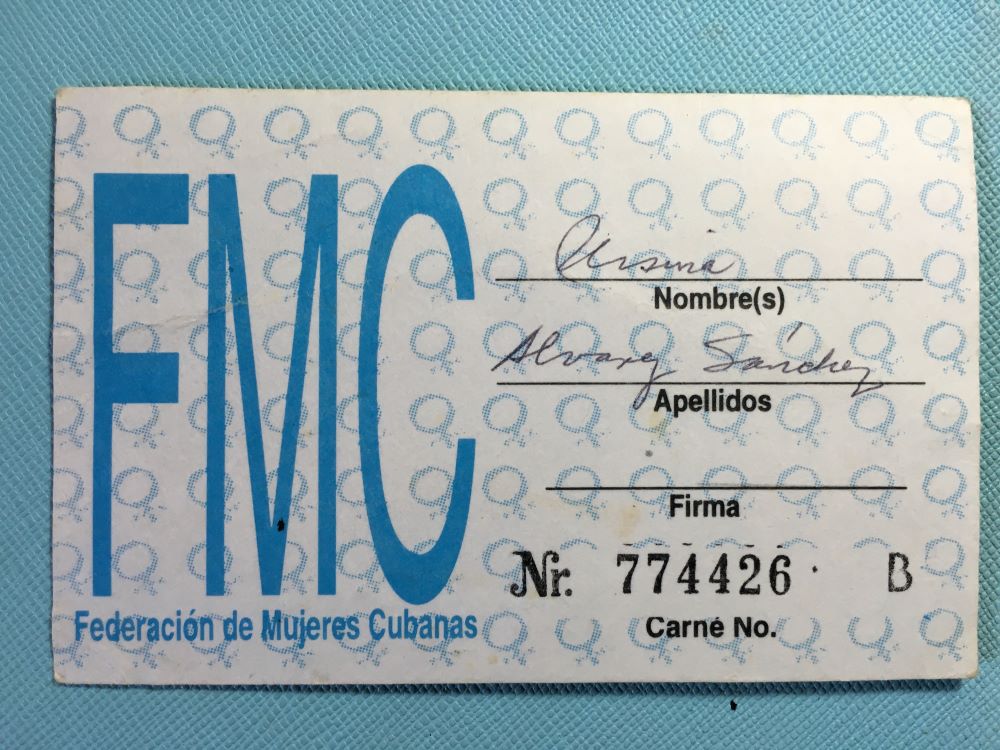Directed for decades by Vilma Espín, the FMC was the “mass organization” in which all women were supposed to participate. The term itself connotes Cuba’s adoption of norms from the Communist bloc. All countries governed by the Communist Party share several principles of economic and social organization. One is that the government owns the means of production and thereby controls both labor and distribution of the fruits of labor. Perhaps most important to the management of this is that “civil society,” including the press, labor unions, social clubs, creative groups, and professional associations, are replaced with state-directed “mass organizations.” Aspects of one’s identity, such as one’s occupation as a peasant, public health worker or the like, are mobilized into a political relationship of service and, theoretically, exchange with the state. For the FMC, that relationship—largely of service and not collective self-representation—was decidedly unequal. But sisterhood or ideological solidarity with women’s liberation activists of non-Communist movements was also not allowed. The daughter of a wealthy Santiago family, a former chemistry major at MIT, top urban activist in the anti-Batista war, and Raúl Castro’s wife, Espín famously responded to the call for solidarity in the 1970s with the statement; We’re not feminists, we’re feminine. Ernesto Chávez Collection, University of Florida.
